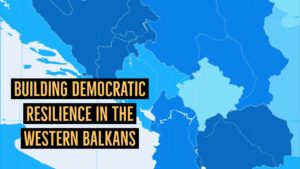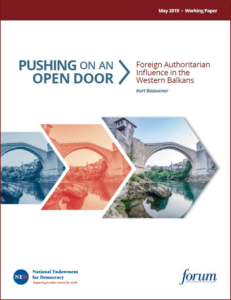 The European Union is signaling a watershed reversal of its enlargement policy, as reports out of Brussels suggest that EU leaders no longer support an assured path to membership for Western Balkans countries, note Catherine Ashton, Misha Glenny, Mark Medish, Alexander Rondos and Ivan Vejvoda.
The European Union is signaling a watershed reversal of its enlargement policy, as reports out of Brussels suggest that EU leaders no longer support an assured path to membership for Western Balkans countries, note Catherine Ashton, Misha Glenny, Mark Medish, Alexander Rondos and Ivan Vejvoda.
By hesitating on the Balkans, the EU is inviting those who do not share its norms and values onto its frontiers and its cultural and geographic space. This would be a reversal of commitments long given, and on which Western Balkans countries have relied. It would also be a strategic mistake, they write for POLITICO:
The Western Balkans countries have also been particularly slow and uneven reformers, and lingering corruption concerns and anti-democratic trends in new member countries have made many wary of importing new potential problems. Anti-immigrant attitudes and fiscal conservatism have also hardened across Europe. And Brexit has undermined assumptions about Europe’s common destiny.
 State capture, erosion of independent media, and the growth of corrupt patronage networks are features of this landscape, the Democratization Policy Council’s Kurt Bassuener wrote in “Pushing on an Open Door: Foreign Authoritarian Influence in the Western Balkans,” a report for the International Forum at the National Endowment for Democracy (NED).
State capture, erosion of independent media, and the growth of corrupt patronage networks are features of this landscape, the Democratization Policy Council’s Kurt Bassuener wrote in “Pushing on an Open Door: Foreign Authoritarian Influence in the Western Balkans,” a report for the International Forum at the National Endowment for Democracy (NED).
Now is time to show renewed confidence in a strong Europe and promote the democratic values that still inspire so many in the region and across the world, Ashton, et al, insist.







